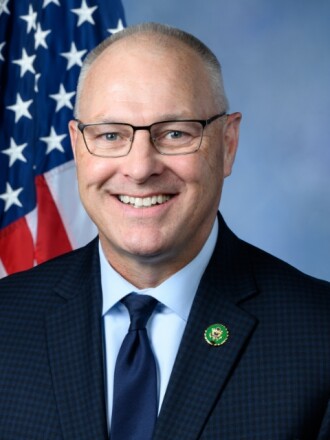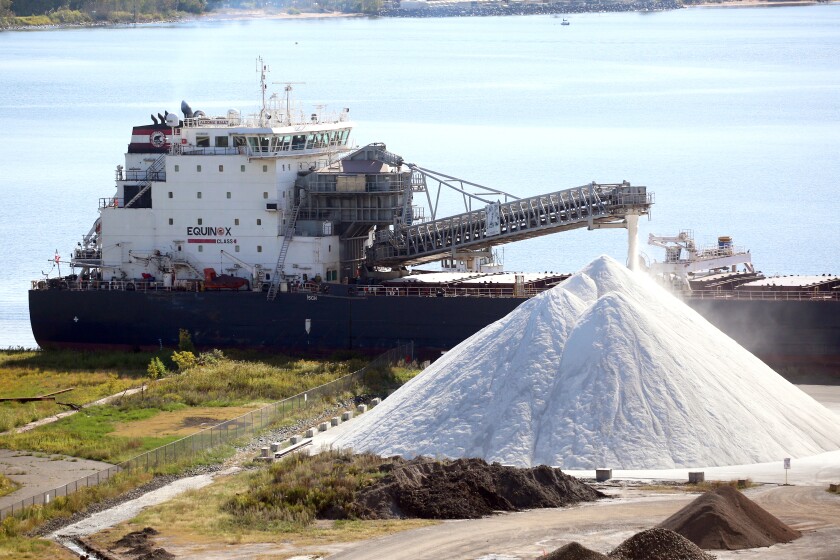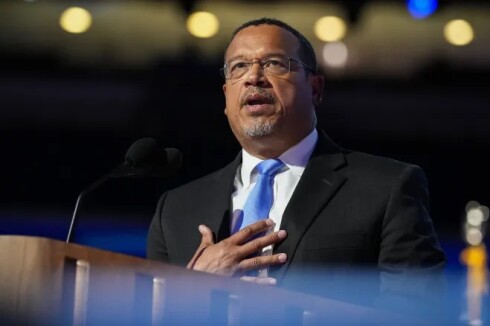DULUTH — Tariffs of 25% against sales of goods from Canada and Mexico that were set to take effect on Tuesday have been placed on hold for at least 30 days to allow for further negotiations. As the diplomatic saber-rattling temporarily subsides, area businesses and residents continue to prepare for the possibility that new barriers to North American trade may spring up in the weeks to come.
Northland interests have much riding on how those pending trade talks go.
ADVERTISEMENT
Tony Barrett, emeritus professor of economics for the College of St. Scholastica, said that if illegal border crossings and the flow of fentanyl into the U.S. are the true rationale for the sanctions, as the Trump administration maintains, the issue likely could be addressed shortly and with minimal economic disruption.
But if the nature of the trade dispute becomes muddier, he suggested the consequences could be far worse.
“If the dispute becomes protracted, nothing economically positive will come from it,” Barrett predicted.
Given the current configuration of auto-making operations, with parts and vehicles flowing throughout North America, he said economists project the proposed 25% tariffs could add about $3,000 to the cost of a new vehicle purchased in the U.S. In turn, Barrett noted that higher prices for new vehicles would likely bleed into the domestic used-car market, too.
“Things like this work their way out down the food chain,” Barrett said, explaining that the expense will be passed forward.
“It will end up costing consumers more,” he said. “The idea that the exporting countries will pay the tariffs simply is not true. It would be nice to believe that, but they won’t.”
Some have speculated the Trump administration aims to use the threat of tariffs to get an early jump on renegotiating the U.S.-Mexico-Canada Trade Agreement — a revamped version of NAFTA, short for the North American Free Trade Agreement.
ADVERTISEMENT
Inu Manak, a fellow for trade policy at the Council on Foreign Relations, noted that the U.S. proposes to levy tariffs under the guise of the International Emergency Powers Act, claiming a crisis at its borders due to illegal immigration and drug smuggling.
“If that’s the president’s goal, it has nothing to do with declaring a national emergency at the southern border,” she said.
As Canadian Prime Minister Justin Trudeau noted, less than 1% of both fentanyl seizures and illegal border crossings have been documented at the northern border of the U.S. However, Canada pledged to invest $1.3 billion to beef up its border security to address U.S. concerns.
Manak warned against attempting to rationalize the actions of the Trump administration “because I think this was kind of quickly put together, and if you look at the executive orders, clearly was not well thought through.”
She said that a strong counter-response by Canada should come as no surprise if tariffs take effect, including actions that could drive up the cost of fuel in the U.S.
“There are considerations of export charges on oil and gas coming out of Canada, and I think they’re within their rights to do so. So, we’re likely to see the escalation of a trade war come through,” Manak said. “But most importantly, we should not forget that what the president has used is (the International Emergency Powers Act), and it doesn’t quite make sense how you connect what he says is the threat to our use of tariffs.”
U.S. Pete Stauber, R-Minn., defends Trump’s use of a tariff threat to prompt movement in negotiations.
ADVERTISEMENT
“We have already seen President Trump effectively use tariffs as a tool to extract policy wins for the American people,” said Stauber, a Hermantown resident who represents the 8th Congressional District. "During his first term, he enacted the 232 steel tariffs, which prevented China from flooding our markets with cheap steel and protected American mining interests on the Iron Range and the entire domestic steel industry.

“These tariffs were so effective that they were kept in place by the Biden administration,” Stauber said. “And just today, it was announced that Trump’s tariffs brought Mexico and Canada to the negotiating table, and they ultimately agreed to work with President Trump to secure our borders and tackle the fentanyl crisis. There will now be a 30-day delay on U.S. tariffs, allowing more time to reach fair economic agreements. I applaud President Trump for putting our country first and delivering real results for the American people.”
The Great Lakes and St. Lawrence Cities Initiative issued a letter “to the growing chorus of American and Canadian leaders who oppose the prospect of a harmful trade war between our two countries.”
“The economic engine of the Great Lakes and St. Lawrence River Region supports over 50 million jobs that our residents count on,” the letter said. “The livelihoods of millions cannot be put at risk by putting these jobs in jeopardy.”
When asked if Duluth Mayor Roger Reinert had signed on to the letter, his office responded by saying that while it was aware of the initiative’s opposition to the proposed tariffs, “The (Initiative’s) statement was made on behalf of its membership without consulting the city of Duluth. We are monitoring and evaluating any potential economic impacts of tariffs.”
Deb DeLuca, executive director of the Duluth Seaway Port Authority, said her staff is also closing tracking developments.
“Duluth-Superior is a world port, and global trade is part of our lifeblood,” she said. “Anything that inhibits free trade is generally a negative for the port, with the exception of policies that protect against foreign steel-dumping.”
ADVERTISEMENT
DeLuca noted close ties between port cities on both sides of the border.
“Regarding Canada and the U.S. specifically, Duluth-Superior would likely suffer from tariffs imposed by either country,” she said. “Cargo volumes between our port and Canada total in the millions of tons each year, spread across categories like iron ore, lumber, salt, grain and general cargo. Almost a third of the iron ore that sailed from Duluth-Superior during the 2024 navigation season went to Canada.
“Our northern neighbor is a major trade partner,” DeLuca said. “and the net economic result of a trade war between Canada and the U.S. would likely be more negative than positive for our port.”
Nevertheless, Eric Peace, vice president of the Lake Carriers Association, which represents U.S.-flagged operators of the Great Lakes fleet, suggested the short-term effects of the proposed tariffs would likely be minimal on his organization’s members. In fact, he predicted it could lead to more business for its members, as carriers are called upon to move more domestic salt by way of water — shipments that nearly all involve Canadian salt shipped by Canadian vessels.
However, he acknowledged that a protracted trade dispute could prove more disruptive to the domestic automobile industry, potentially weakening demand for steel and slowing shipments of taconite.
Forest products could also take a hit, with the U.S. importing about one-third of its softwood lumber from Canada and relying heavily on its paper-making capacity, as well.
Forum Communications Co., the Fargo, North Dakota-based owner of the News Tribune, buys all of its newsprint from Canadian paper makers and would feel the direct impact of the proposed tariffs.
ADVERTISEMENT
Aaron Becher, Forum Communications’ vice president of newspapers, said that if the threatened tariffs take effect, “It will present us with greater cost challenges that we will need to manage carefully.”

















